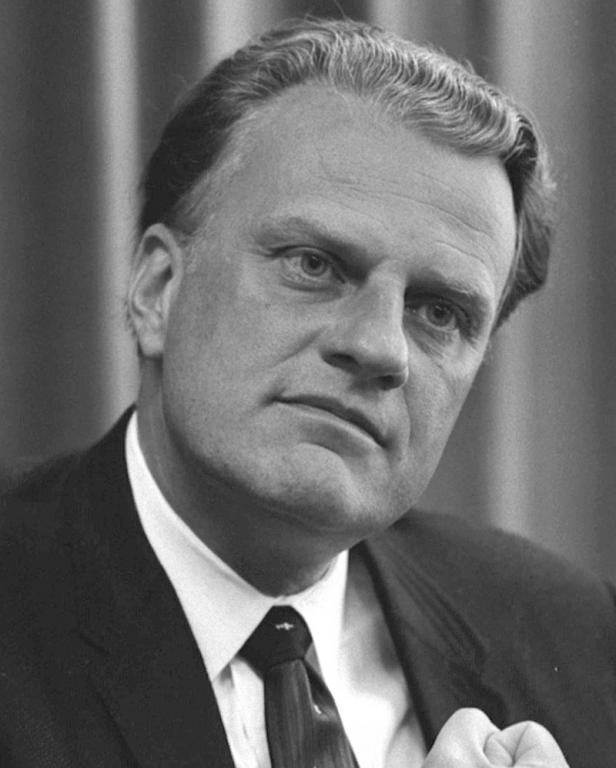As is to be expected in this vitriolic age, no one is safe. Not even the saints. Especially when they’ve passed. Billy Graham has gone on to his rewards, and here on earth we’ve begun the dismantling of his life.
For some, he was a hero. For others, a monster. For some, his unrelenting dedication to marital fidelity was a model of integrity and respect for Ruth. For others, it was a pernicious denigration of the value of women. For some, his ministry to global leaders, including all of the U.S. presidents during his lifetime, made him a paragon of “speaking truth to power,” despite some of the (grievous) fumbles in that ministry. For others, he forfeits any recognition (other than vilification) because of those blunders.
It’s always easy to throw someone under the bus once they’re gone. It’s just as easy to give them halos and claim them as posthumous supporters for your own causes. What’s really hard is to look realistically at a man like Billy Graham and say, hmm, he fought his way forward in faith, making plenty of mistakes along the way, yet never changed direction, never veered from true north. He didn’t “belong” to anyone, on the right or on the left. Thus we can comfortably welcome reflections like Jonathan Merritt’s op-ed in The New York Times, where he writes,
Perhaps most relevant to our current moment, Mr. Graham found a way to exert influence in the public square while remaining nonpartisan. He met with every president from Harry Truman to Barack Obama. …
Today, when Mr. Graham passed from this life into the next, we lost perhaps the last true evangelical statesman. Filling the space he vacated is a new crop of religious leaders who would do well to live as Mr. Graham did — resisting the pull of partisanship, standing courageously in the middle; speaking with love and mutual respect for those who claim other parties; clinging to the Gospel, but not in a way that marginalizes listeners based on their political affiliations.
And we can also ponder reflections like the Slate replay of Billy Graham’s highlights by Ruth Graham (no relation), where she writes,
Ninety-nine years on Earth provides a lot of time for growth and self-reflection, and Graham eventually apologized for these moral errors. But he never flipped around and became an activist with sustained attention to social justice. No one is obligated to forgive him. … Decency, respectability, civility—lately it feels like these qualities are sometimes read as code words for a failure to speak truth to power. Indeed, it’s tempting to daydream about what theologically conservative Christianity might look like in 2018 if Graham had been just slightly more willing to afflict the comfortable. Instead, he was a natural moderate who had the misfortune to die in a moment in which fence-sitting has fallen out of favor.
And yet, I do think both authors are missing the real point about Billy Graham, the true reason he both succeeded in the ways they measure success and failed in the ways they measure failure. He wasn’t primarily successful because he was nonpartisan, stood in the middle, and rejected marginalization of others, and he wasn’t primarily a failure because he was merely a natural moderate, lagging in his zeal to afflict the comfortable, and failed to flip around and become a social justice advocate.
Billy Graham chose to live with one purpose: to preach Christ and him crucified. No one is trying to say he did so perfectly, but he clearly made his choices—moral, social, cultural, political—with this alone in mind.
This in itself is a kind of “ascesis,” a purposeful training of heart and mind and will toward the singular message about Jesus Christ. He alone is the key to personal and communal distress. The message—that God is deeply, unwaveringly, lovingly committed to our good, so much so that he gave his Son as a gift and let his Son absorb every particle of sin and evil we have generated so that we could be free of it—was the only message Billy Graham wanted to give. Everything else was subsidiary—even critically important issues—because he believed that they could only be fully resolved through the transformation of faith.
So, in Graham’s singular focus, he never “did enough” to satisfy those for whom the subsidiary issues are the primary ones. He never did enough to support nuclear disarmament, to challenge abortion, to stand for the immigrant, to speak about marriage, to support civil rights, to speak for equality, or to confront oppression. He wasn’t an activist at all, he was an ascetic, a man whose entire life revolved around a single truth, Jesus, and a single goal, to make him known.














